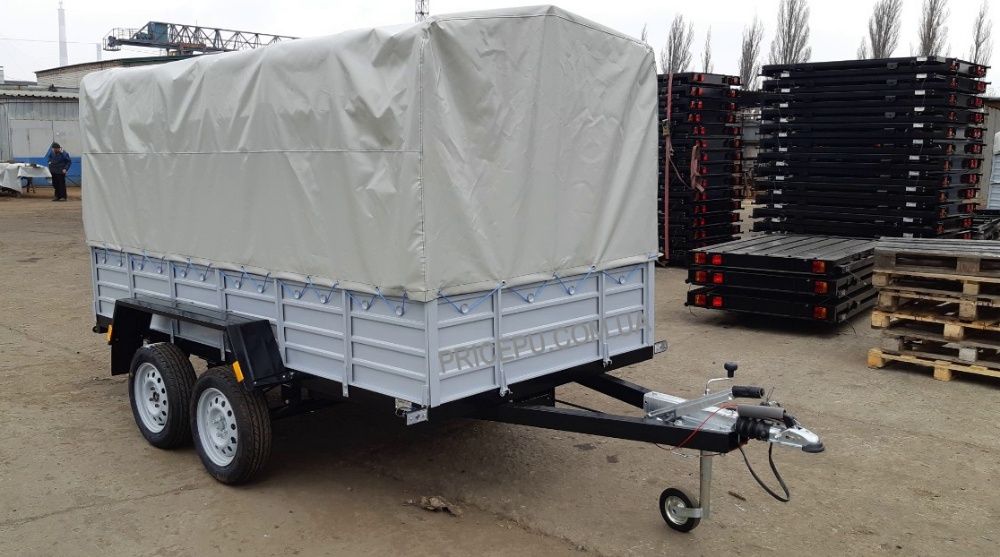Steer clear of Common Facts While Selecting Extended Watercraft Transp…
페이지 정보
작성자 Halina 작성일 25-03-21 04:23 조회 28 댓글 0본문
When buying a extended boat trailer, it is important to be mindful of the frequent misconceptions that may lead to a inadequate buying decision. A wrong choice can result in minimized performance, increased servicing costs, and even safety risks for купить ложементы для лодочного прицепа крепыш you and your boat. Here are some myths you should shun when selecting long boat trailers.
One well-known misconception is that a bulkier trailer is more secure. This is not always valid. While heavier trailers do offer more weight, they can be more difficult to navigate and may pose issues with road handling. Furthermore, heavier trailers require additional power to hitch, which may not be feasible for smaller engine vehicles.
Another misconception is that all-aluminum trailers are superb to trailers made from other materials. While aluminum has its benefits, such as sturdiness and immunity to corrosion, it can also have its drawbacks. Aluminum trailers tend to be more expensive, and some manufacturers use a combination of materials to improve their products.
Some people believe that the width and extent of a trailer are the only factors that determine how well it will function on the road. However, the configuration and stability of the trailer are also crucial. A well-designed trailer should have a consistent weight distribution, allowing it to maintain stability on irregular road surfaces. Additionally, the trailer's suspension system and brakes can significantly impact its performance.
Another misconception is that long boat trailers require high clearance. While it is true that taller trailers may become more prone to damage, there are several options available for lowering a trailer's clearance without compromising its efficiency. Some manufacturers offer low-clearance options, while others provide adjustable suspension systems that can be customized to meet different towing conditions.
 The conception that all long boat trailers are created equal is another fact. There are several types of trailers available, including freshwater and saltwater designs, which cater to different boat types and environments. Picking out the right type of trailer for your boat can make all the difference in its performance and longevity.
The conception that all long boat trailers are created equal is another fact. There are several types of trailers available, including freshwater and saltwater designs, which cater to different boat types and environments. Picking out the right type of trailer for your boat can make all the difference in its performance and longevity.
Lastly, it is easy to get caught up in the pledge of a 'one-size-fits-all' trailer. However, this can lead to a bad match between the trailer and your boat or vehicle. It is critical to consider your specific needs, including your boat's dimension and type, the topography you will be towing on, and the towing vehicle's capabilities.
In wrap-up, there are several well-known myths to be aware of when choosing a long boat trailer. By understanding the pros and cons of different materials, designs, and features, you can make an informed decision that meets your needs and ensures a safe and positive boating experience.
One well-known misconception is that a bulkier trailer is more secure. This is not always valid. While heavier trailers do offer more weight, they can be more difficult to navigate and may pose issues with road handling. Furthermore, heavier trailers require additional power to hitch, which may not be feasible for smaller engine vehicles.
Another misconception is that all-aluminum trailers are superb to trailers made from other materials. While aluminum has its benefits, such as sturdiness and immunity to corrosion, it can also have its drawbacks. Aluminum trailers tend to be more expensive, and some manufacturers use a combination of materials to improve their products.
Some people believe that the width and extent of a trailer are the only factors that determine how well it will function on the road. However, the configuration and stability of the trailer are also crucial. A well-designed trailer should have a consistent weight distribution, allowing it to maintain stability on irregular road surfaces. Additionally, the trailer's suspension system and brakes can significantly impact its performance.
Another misconception is that long boat trailers require high clearance. While it is true that taller trailers may become more prone to damage, there are several options available for lowering a trailer's clearance without compromising its efficiency. Some manufacturers offer low-clearance options, while others provide adjustable suspension systems that can be customized to meet different towing conditions.
Lastly, it is easy to get caught up in the pledge of a 'one-size-fits-all' trailer. However, this can lead to a bad match between the trailer and your boat or vehicle. It is critical to consider your specific needs, including your boat's dimension and type, the topography you will be towing on, and the towing vehicle's capabilities.
In wrap-up, there are several well-known myths to be aware of when choosing a long boat trailer. By understanding the pros and cons of different materials, designs, and features, you can make an informed decision that meets your needs and ensures a safe and positive boating experience.
댓글목록 0
등록된 댓글이 없습니다.
